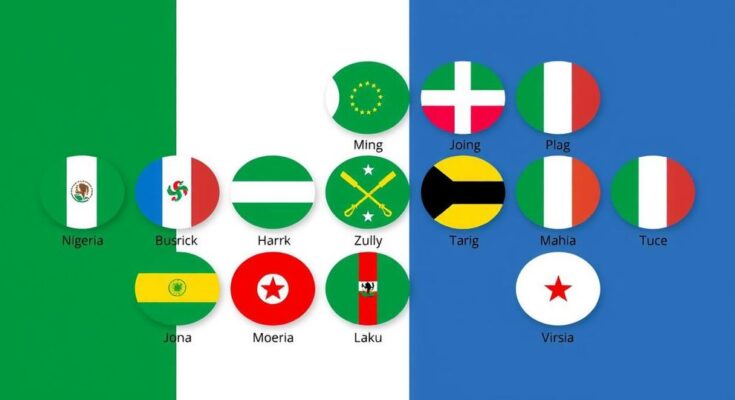Nigeria has joined BRICS along with twelve other nations as partner countries during the summit in Russia. A total of thirteen new nations are now partnerships within BRICS, although the group will not accept new full members in 2024. This strategic decision allows the partnership to solidify before any further expansions.
As the BRICS summit in Russia draws to a close, Nigeria, along with twelve other nations, has officially joined the group as partner countries. A total of thirteen new nations have been welcomed into this partnership under the BRICS initiative. However, the coalition has opted not to accept any new countries as full members of the alliance for the year 2024. The thirteen nations are now working towards the possibility of becoming full alliance members in the future. The current full members of the BRICS group are Brazil, Russia, India, China, South Africa, along with additional members including the United Arab Emirates, Iran, Egypt, Ethiopia, and others. The newly recognized partner countries include Algeria, Belarus, Bolivia, Cuba, Indonesia, Kazakhstan, Malaysia, Nigeria, Thailand, Turkey, Uganda, Uzbekistan, and Vietnam. The concept of BRICS was initially developed in 2001 by economist Jim O’Neil of Goldman Sachs, who conceived the acronym to represent Brazil, Russia, India, and China. These nations were identified as large, middle-income countries with rapidly growing economies that had the potential to dominate the global economy by the year 2050. The formal collaboration began in 2006 with the initial four countries before South Africa joined in 2010, officially forming the BRICS group.
BRICS is an acronym representing a coalition of emerging economies originally consisting of Brazil, Russia, India, and China. Established formally in 2006, with South Africa joining in 2010, this grouping focuses on enhancing economic cooperation among member countries. The recent inclusion of partner countries reflects BRICS’s ability to attract interest from a broader base of nations seeking to collaborate on strategic global matters, economic development, and regional stability. The decision to limit full membership admission in 2024 indicates a strategic approach to consolidate existing partnerships before expanding the group further.
In conclusion, the recent addition of Nigeria and twelve other countries as partners in the BRICS initiative highlights the growing interest in this international coalition. While no new member countries will be granted full membership next year, these partner nations are expected to work diligently toward that goal in the future. The BRICS grouping continues to evolve, reflecting its significance in the global economic landscape as an influential alliance of emerging markets.
Original Source: www.bbc.com




